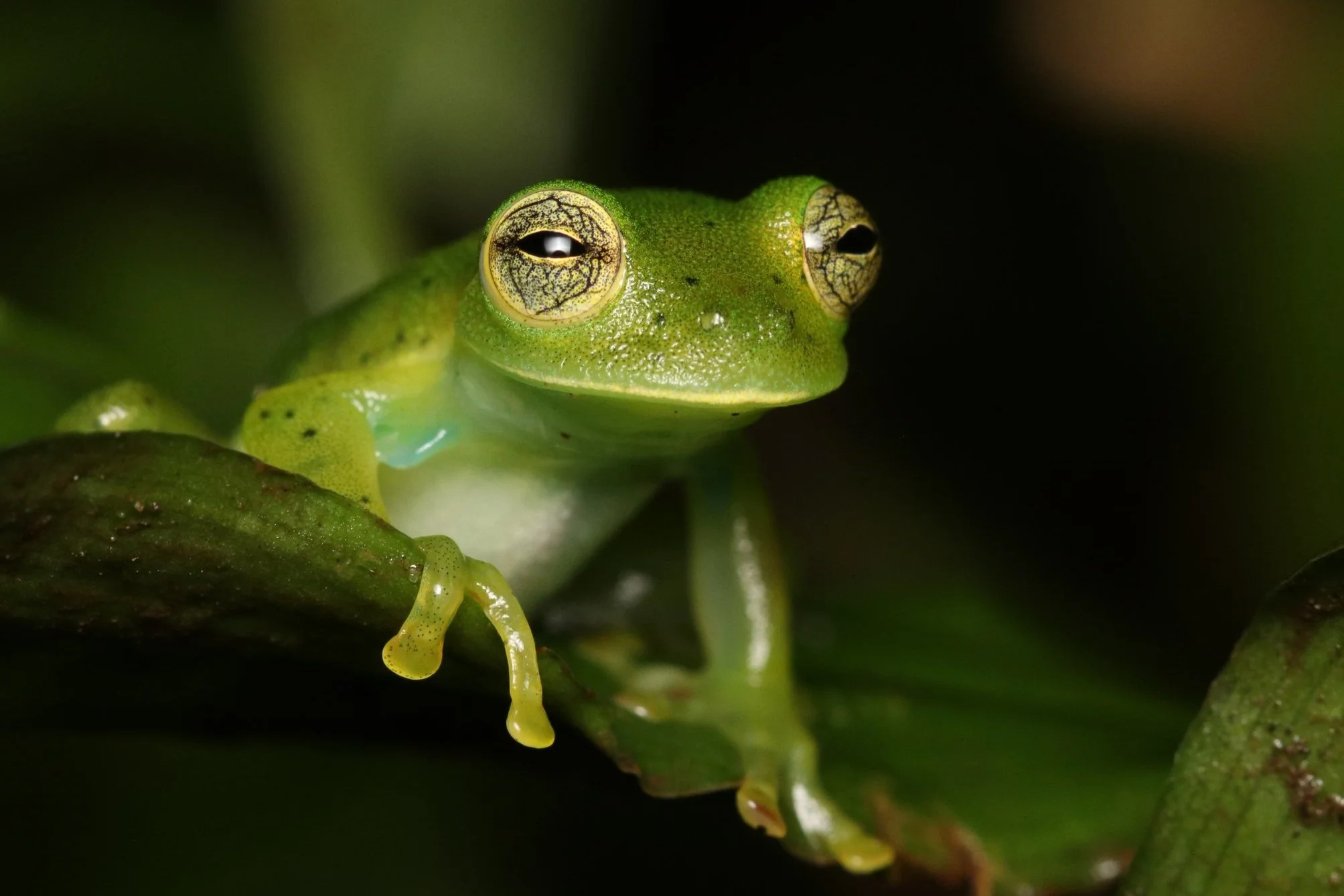New paper in Animal Behavior
Not enough time: short-term female presence after oviposition does not improve egg survival in the emerald glass frog
Johana Goyes Vallejos, José Sandoval Siles, Viky Calero, Noemi Rodriguez and Glauco Machado
Our latest paper was just published in Animal Behaviour! In this study, I challenge some long-standing assumptions about parental care in amphibians—specifically, in emerald glass frogs (Espadarana prosoblepon).
For a long time, both scientists and nature lovers have seen adult frogs sitting near their eggs and assumed that this presence was a form of active parental care. But after spending many nights in the field observing these frogs in Costa Rica, my team and I discovered something surprising: the mother frog’s presence doesn’t actually make a difference in the survival of her eggs.
We carried out detailed observations and experiments across two field seasons (2021 – 2022). Our evenings began around 7 p.m., looking for frogs getting ready to mate, and often ended between midnight and 5 a.m. after watching females lay eggs. We focused on what the females did after laying eggs—specifically, whether sticking around briefly helped protect the eggs from predators or dehydration, the two major threats glass frog eggs face.
What we found was unexpected: whether or not the female stayed with the eggs made no difference. The risks of predation and dehydration were the same either way. This finding challenges the idea that just because a parent is present, it means they’re providing effective care.
This study is a reminder that parental care is a complex behavior and that appearances can be misleading. As I said in the paper, “While the mother frog's presence may seem indicative of protective care, our study demonstrates that this is not necessarily the case.”
These results have implications beyond frogs—they push us to think more critically about how we define and study parental care across the animal kingdom. It also reinforces the value of careful, natural history-based research to uncover what’s really going on in the wild.

